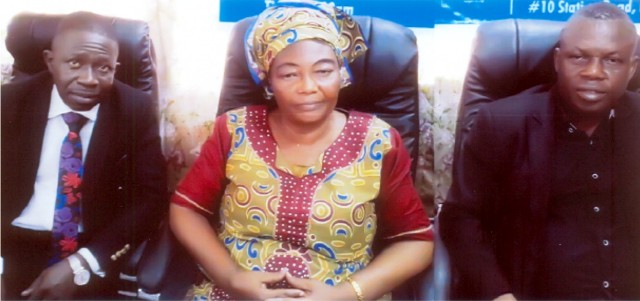Business
RSG, EFCC Partner NIPOST In Corruption Fight

The Rivers State Government has stated its resolve to support the Nigeria Postal Services (NIPOST) in its fight against corruption through the use of special anti-Corruption Stamps.
Secretary to the State Government (SSG), Kenneth Kobani, stated this during the launching of anti-Corruption Special Postage Stamps in Port Harcourt at the weekend.
The SSG, who was represented by the Head, SSG (Main), Mr Victor Orji, at the occasion with the theme, “ The Role of NIPOST in the fight against corruption”, said the State government will ensure that the fight against corruption through the special stamp is a success.
“RSG is truly behind anti-Corruption to ensure that this particular activity is a success. We will support it in any way we are called upon”, he said.
In the same vein, the Economic and Financial Crimes Commission (EFCC) also indicated its readiness to partner with NIPOST in the fight against corruption.
Making this declaration at the occasion, the Zonal Head, EFCC, Mr Eshaq Salihu, stated that fighting corruption is a must if Nigeria wants to have a future.
“If we desire very robust future, we can invest. But if we don’t fight corruption, there may be no future for us. What we do today, will determine our future”, he said.
Salihu, who was represented by the Head, Public Affairs, South-South Zone, Mr Dele Oyewale, noted that one way to achieve success in this fight is to ensure that “we all (Nigerians) take it as our personal challenge.
In addition to this, he continued, “every enabling Act, Policy, Procedures and Processes that have been designed to move the anti-Corruption fight forward must be supported.
“We must all cooperate and see the fight as our fight, not an EFCC or Independent Corrupt Practices Commission (ICPC) fight alone.
Earlier in her speech, the Area Postal Manager (APMD), Rivers, Rivers Territor, Rev . (Mrs)Danso Olayinka, had emphasized on the need to fight corruption in Nigeria from all angles, including the special anti-corruption pastage stamps.
“Postage stamps are regarded globally as one of the most effective Public Relations tools capable or Independent Corrupt Practices commission (ICPS) fight alone.
Earlier in her speech, the Area Postal Manager (APM) NIPOST, Rivers Territory, Rev (Mrs) Danso Olayinka, had emphasized on the need to fight corruption in Nigeria from all angles, including the special anti-Corruption Postage Stamps.
“Postage stamps are regarded globally as one of the most effective Public Relations tools capable of supplying information and creating optimum public awareness and understanding.
“The Issuance of these Postage Stamps in support of the anti-Corruption Crusade under scores the role of NIPOST in the socio-economic development of Nigerian.
“The Postage Stamps will constantly remind the populace of the evils of corruption and the need to eliminate the scourge”, she said.
Sogbeba Dokubo
Business
Customs Seek Support To Curb Smuggling In Ogun

Business
IFAD: Nigeria Leads Global Push For Youth, Women Investment In Agriculture
Business
Expert Tasks FG On Food Imports To Protect Farmers

-

 Politics3 days ago
Politics3 days agoAPC Releases Adjusted Timetable For Nationwide Congresses, Convention
-
Sports3 days ago
DG NIS Wants NSC Board Constituted, Seeks Increased In Funding
-

 Business3 days ago
Business3 days agoCustoms Seek Support To Curb Smuggling In Ogun
-

 Sports3 days ago
Sports3 days agoSWAN Rivers Set-up Five Functional Committees
-
News3 days ago
Police Bust Kidnapping Syndicate In PH
-
Sports3 days ago
NSC Disburses N200m Training Grants To 26 Athletes
-

 Featured3 days ago
Featured3 days agoINEC Proposes N873.78bn For 2027 Elections, N171bn For 2026 Operations
-
Sports3 days ago
‘NTF Will Build On Davis Cup Success For Brighter Future’

